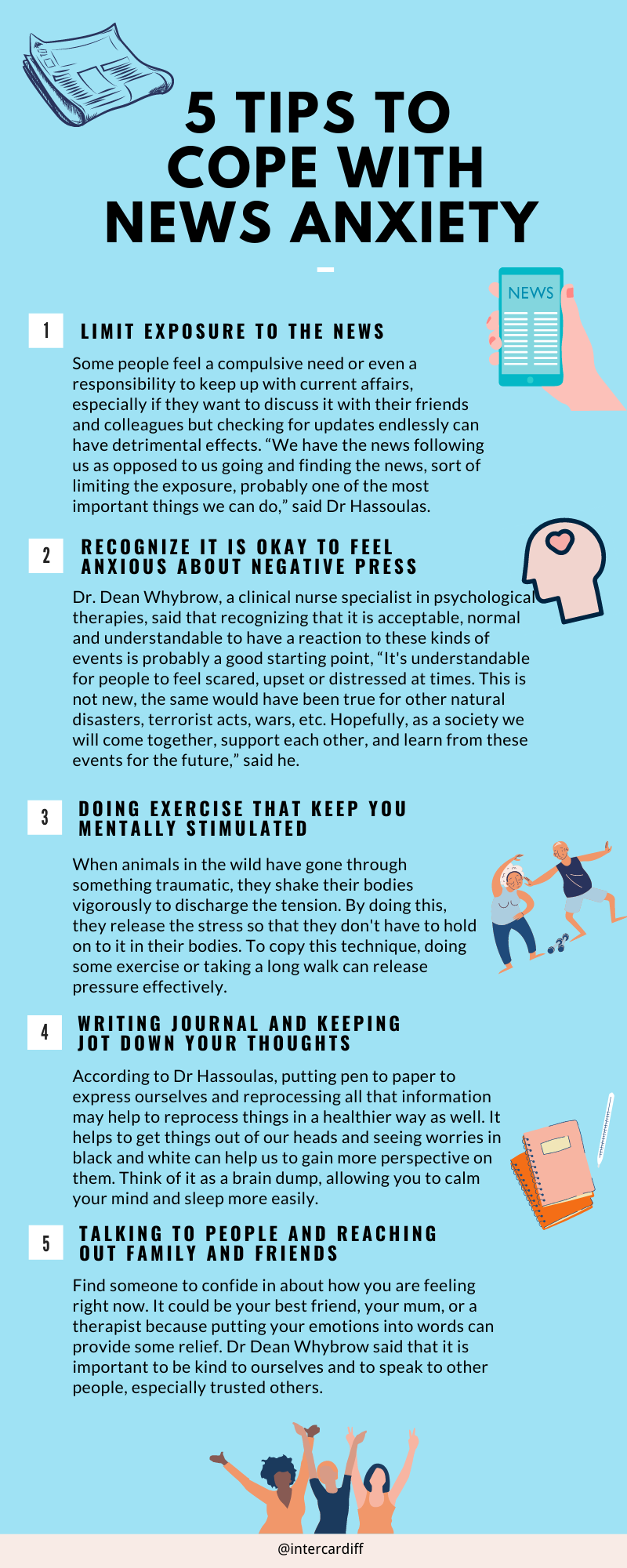If you feel anxious every time you open a news website then you are not alone. Here’s how to tackle your anxiety and look after your mental health

The scenes of devastation caused by the Russian invasion of Ukraine are shocking and upsetting, while the implications of the conflict for the rest of the world are hard to ignore especially at a time when the COVID continues to spread.
A constant stream of negative news can have a major impact on our well-being, making us anxious and prone to depression, according to Dr Athanasios Hassoulas, the Director of the MSc in Psychiatry at Cardiff University.
“I think what we tend to see is that there are certain stories in the mainstream media that that activates a kind of a stress response in people and make them feel anxious,” said Dr Hassoulas, “Events that appear to be out of our control and are unpredictable, tend to contribute to the experience of stress”.
He also said if these events are closer to home, it will also play a role in people’s experience of stress in response to those events. This was particularly true of the pandemic. “It touched everyone’s lives and as a result because it was so personal and so close and so disruptive,” said Dr Hassoulas.
“We didn’t have that sense of control over the pandemic, at least in the first year or so, before the vaccines were rolled out,” he said. “It was also in many ways unpredictable because we saw a lot of people were dying and we were still learning.” He said that the news contains uncontrollable, unpredictable, close to home and disruptive stories could increase the level of anxiety.

It is easy to see that the war is now being witnessed by the population in all countries and presented in real-time on social media platforms, which allows people to empathise directly by observing the war scenes online.
Vicarious traumatization is no less psychologically distressing than real trauma, so people increasingly experience the feeling of being overwhelmed by the ‘news’ and finding it difficult to catch their breath.
Such phenomena are referred to as “headline stress disorder”, proposed by a therapist in the Washington Post. It describes the therapist’s personal experience with clients in whom the gruelling news cycle triggered intense feelings of worry and helplessness.
Dr Hassoulas said: “Sort of clickbait and headlines that are emotive in nature and try to activate an emotional response in someone that can actually at times have a detrimental effect. It does impact certain people quite negatively.”
Even if we are overwhelmed, we can use some coping mechanisms to alleviate our feelings without shutting out the world or ignoring the dilemma of others.

